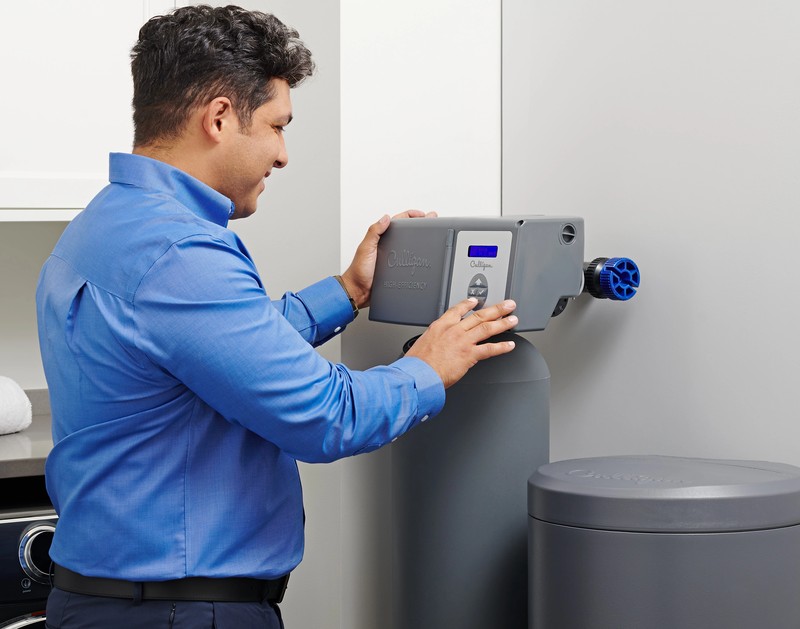Conscious homeowners have had to deal with hard water stains for a long time. Do you have rust spots around your bathroom’s sinks, tubs, and showers? The high mineral content, sometimes known as hard water, in your water supply is to blame for the issue. Dissolved minerals including calcium, magnesium, and limestone may accumulate and create staining and spotting. In a nation where so many homes have hard water, even the cleanest house might start to seem unpleasant when hard water stains form. While the health risks associated with hard water are minimal, it can make it much more challenging to keep a home looking neat and attractive. The following advice can help you and your family combat unsightly hard water stains.
Be sure the area stays dry.
If you see hard water stains forming on your shower doors or other wet areas of your house, there is an easy fix. Since mineral deposits are more likely to develop on wet surfaces, drying them out may help prevent the buildup of these deposits. Showers and sinks may become wet on a regular basis, but you shouldn’t leave hard water there for long or it may dry up and cause damage. When an area has been flooded, drying all surfaces as soon as feasible is a top priority. Wipe clean the sinks and countertops after each use and let them air dry. Many house owners have found that a squeegee or towel might be useful for drying the shower doors after use.
Use products that neutralise minerals’ effects.
Most store-bought solutions marketed as effective against hard water stains actually include toxic chemicals. For families with both children and pets, this might pose a serious risk. If hard water stains persist despite your best efforts, you might try one of many gentler cleaning methods. Hard water may leave a residue in toilets, but a few glasses of white vinegar can dissolve it. If you clean the stains with vinegar and then scrub them well, you should be able to get rid of them entirely. Lemon juice is another classic method for removing hard water stains. Using either pure lemon juice or a mixture of vinegar and water, you may create a powerful but risk-free solution for cleaning stains from your home. Bathtubs, faucets, shower doors, and sinks may all benefit from having the solution sprayed on them and let to sit for 15 to 20 minutes. The stains should be easy to clean. The same solution may be used to avoid stains if it is sprayed on the problem regions.
Stains may be avoided with regular cleaning.
The saying “prevention is better than cure” is particularly relevant when it comes to domestic cleanliness. Hard water stains worsen with time as additional minerals dry and pile up on your home’s surfaces. Cleaning these stains afterwards, particularly with strong chemicals, will be more difficult. You may include stain prevention cleaning into your usual routine if you discover that some areas are more vulnerable to discoloration. At the very least once a week, and ideally before any signs of staining appear, spray the surfaces with the solution consisting of vinegar or lemon juice.
Last Words
Wait a few minutes for the solution to take effect, and then remove any lingering residue with a damp cloth. At the absolute least, you should be treating your toilet with vinegar once a month. Preventative maintenance like this may help your home keep its stunning good looks for years to come.

